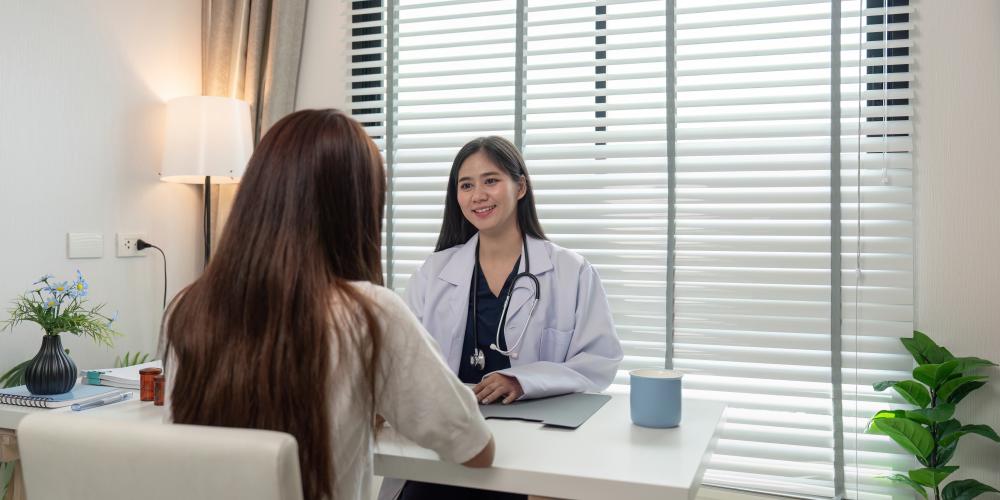Dual Diagnosis Treatment Center Near Me

Exploring Dual Diagnosis
When it comes to finding a Dual Diagnosis Treatment Center Near Me, many individuals and their loved ones feel overwhelmed by the complexity of their needs. Dual diagnosis, or the presence of both mental health and substance use disorders, requires a nuanced approach to treatment that addresses both aspects simultaneously. At Thrive Treatment℠, we recognize the intricacies of these conditions and tailor our treatment plans to meet the unique needs of each client.
Personal experience has taught us that recovery is not a one-size-fits-all process. We’ve seen firsthand how dual diagnosis can create a complex web of challenges that affects not just the individual but also their families and communities. That’s why we emphasize a multi-modal approach, combining evidence-based therapies with compassionate care to support our clients through every step of their recovery journey.
Importance of Specialized Care
Seeking treatment from a center specialized in dual diagnosis is critical. At Thrive Treatment℠, we understand that individuals facing these issues require more than just standard substance abuse treatment. Our programs are designed to address the root causes of addiction and mental health issues, providing a path to long-term recovery and well-being. Our approach is grounded in the latest research and best practices in the field of addiction medicine and mental health treatment.
Why Specialized Care Matters
To effectively treat dual diagnosis, a specialized care approach is necessary. This ensures that both the mental health disorder and the substance use disorder are treated concurrently. This simultaneous treatment is crucial because untreated mental health issues can lead to relapse into substance use, and untreated substance abuse can exacerbate mental health problems. Our team at Thrive Treatment℠ is adept at navigating these complexities, offering a beacon of hope for those who are struggling.
Therapeutic Approaches at Thrive Treatment℠
Our therapeutic approaches are as multifaceted as the individuals we serve. We employ a variety of evidence-based practices, including cognitive-behavioral therapy (CBT), dialectical behavior therapy (DBT), motivational interviewing, and more. Each of these therapies plays a crucial role in addressing the different elements of dual diagnosis, helping clients develop coping mechanisms, resilience, and a deeper understanding of their conditions.
Individualized Treatment Plans
At Thrive Treatment℠, we understand that each client’s journey is unique. Therefore, we craft individualized treatment plans that are as unique as the individuals we serve. By taking into account the specific needs, preferences, and goals of our clients, we ensure a personalized path to recovery. This personalized approach allows us to address not only the symptoms but also the underlying causes of their dual diagnosis, fostering a holistic recovery.
Support Beyond Treatment
Recovery from dual diagnosis is a lifelong journey, and the support shouldn’t stop at the treatment center’s doors. At Thrive Treatment℠, we’re committed to providing ongoing support to our clients and their families. This includes aftercare planning, community resources, and alumni programs designed to help clients maintain their sobriety and mental health stability long after they’ve left our care.
The Role of Community in Recovery
Community plays a pivotal role in the recovery process. By connecting clients with a supportive network of peers who have faced similar challenges, we foster a sense of belonging and mutual support. Our Santa Monica location, in particular, offers a vibrant recovery community where individuals can find encouragement and friendship. This community aspect of recovery is essential for maintaining long-term wellness and sobriety.
Understanding the Challenges of Dual Diagnosis
Dual diagnosis presents unique challenges that require specialized attention. The interplay between mental health disorders and substance abuse can create a cycle that is difficult to break without professional help. Recognizing the signs of dual diagnosis is the first step toward seeking help. Symptoms may include using substances to cope with mental health symptoms, changes in behavior, withdrawal from social situations, and more.
We’ve seen the transformative power of recognition and acceptance in our clients’ lives. By acknowledging their struggles and seeking help, individuals open the door to recovery and healing. At Thrive Treatment℠, we provide the professional support needed to navigate the complexities of dual diagnosis, empowering our clients to lead fulfilling lives.
Navigating Treatment Options
Choosing the right Dual Diagnosis Treatment Center Near Me can be daunting. It’s essential to look for centers that offer comprehensive services, a multidisciplinary team of experts, and a compassionate approach to care. Thrive Treatment℠ meets these criteria and more, offering a ray of hope for individuals and families affected by dual diagnosis. Our dedicated team of clinicians and recovery specialists are here to guide you through every step of your recovery journey.
Testimonial Insights
Client testimonials shed light on the profound impact of our dual diagnosis treatment programs. Many clients express gratitude for the compassionate care and individualized attention they received at Thrive Treatment℠. These stories of recovery and renewal highlight the effectiveness of our approach and the dedication of our staff.
One client shared, “Thrive Treatment℠ gave me my life back. They understood the complexities of my condition and provided the supportive environment I needed to heal.” These powerful words encapsulate the essence of our mission–to provide life-changing treatment that addresses the whole person, not just the symptoms of dual diagnosis.
Contact Thrive Treatment℠
If you or a loved one is searching for a Dual Diagnosis Treatment Center Near Me, Thrive Treatment℠ is here to help. Our team is ready to provide you with the information and support you need to take the first step towards recovery. Contact us today to learn more about our programs and how we can assist you on your journey to wellness.
Remember, recovery is possible. With the right support and treatment, individuals with dual diagnosis can thrive. Let us be your partner in this journey toward healing and renewal. Reach out today and take the first step towards a brighter, healthier future.

What is the new name for dual diagnosis?
Over the years, the term “dual diagnosis” has evolved to encapsulate a more integrated understanding of co-occurring mental health and substance use disorders. Many professionals in the field now refer to it as “co-occurring disorders.” This nomenclature shift reflects a holistic view, acknowledging that these are intertwined issues requiring a comprehensive treatment approach. At our centers, we see the person behind the diagnosis, focusing on treating the whole individual rather than isolating their conditions.
What is a dual diagnosis rehab?
A dual diagnosis rehab is a specialized treatment facility designed to address both substance use disorders and co-occurring mental health conditions simultaneously. At our centers, we recognize that addressing one issue without the other can leave a gap in treatment, often leading to a cycle of relapse and recovery. That’s why our programs integrate strategies to manage mental health while also combating addiction, offering a pathway to sustainable recovery. Through personalized treatment plans, we aim to provide our clients with the tools they need for long-term wellness and sobriety.
What medication is used for dual diagnosis?
The use of medication in treating dual diagnosis is tailored to each individual’s specific conditions and needs. There is no one-size-fits-all medication, as the type prescribed will depend on the nature of the mental health disorder and the substance use issue. Commonly, medications may include antidepressants, mood stabilizers, or antipsychotics to manage mental health symptoms. Simultaneously, medications such as buprenorphine or naltrexone might be used to address substance use. Our approach is to work collaboratively with each client, alongside our medical and psychiatric team, to determine the most effective medication strategy as part of a comprehensive treatment plan.
How to get a dual diagnosis?
Obtaining a dual diagnosis is a critical step toward getting the right help. It begins with a thorough evaluation by a qualified professional who can assess both mental health and substance use issues. At our treatment centers, our team of experts conducts comprehensive assessments to understand the full scope of an individual’s condition. This involves looking at medical history, psychological evaluations, and the pattern of substance use. It’s important to remember that seeking help is a sign of strength, and reaching out to a treatment center like ours is the first step towards recovery. If you suspect you or a loved one might have co-occurring disorders, we encourage you to contact us for a confidential assessment.
Why is specialized care important for patients with dual diagnosis?
Patients with a dual diagnosis face a complex landscape that can’t be effectively addressed through standard treatment methods meant for either substance use or mental health issues alone. Specialized care is paramount because these individuals often experience more severe symptoms, a higher risk of relapse, and additional social and emotional challenges. Our treatment programs are specifically designed to navigate these complexities by providing an integrated treatment model. This approach ensures that we’re not only treating the symptoms but also addressing the root causes of the dual diagnosis. By focusing on specialized care, we aim to break the cycle of addiction and mental health relapse, fostering a path to lasting recovery.
Have you ever wondered how integrated treatment plans can make a difference in someone’s life? Feel free to reach out with your questions or share your thoughts. We’re here to help illuminate the journey to recovery.

